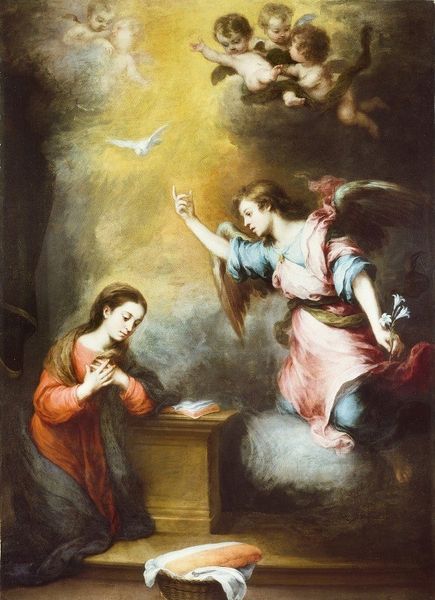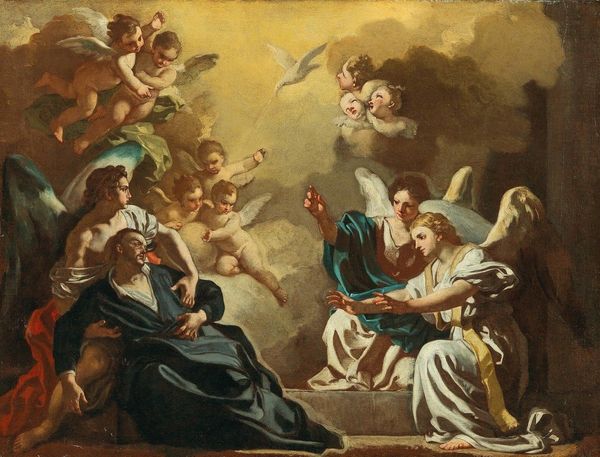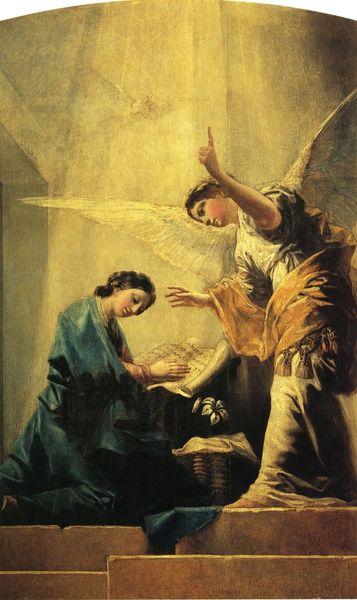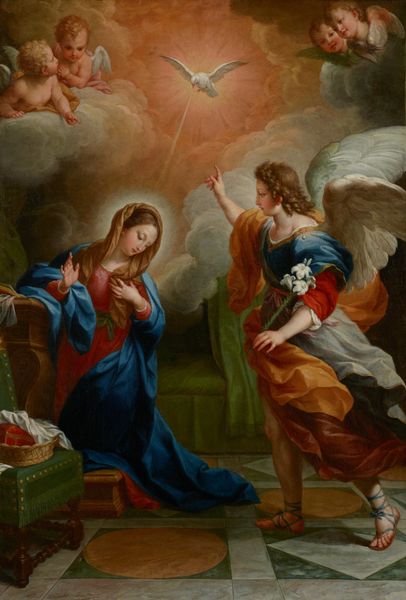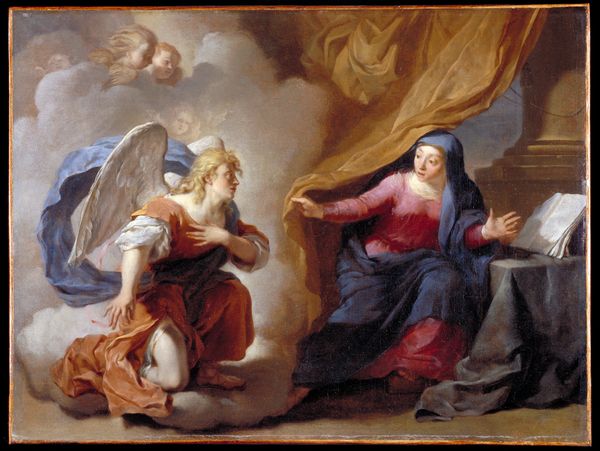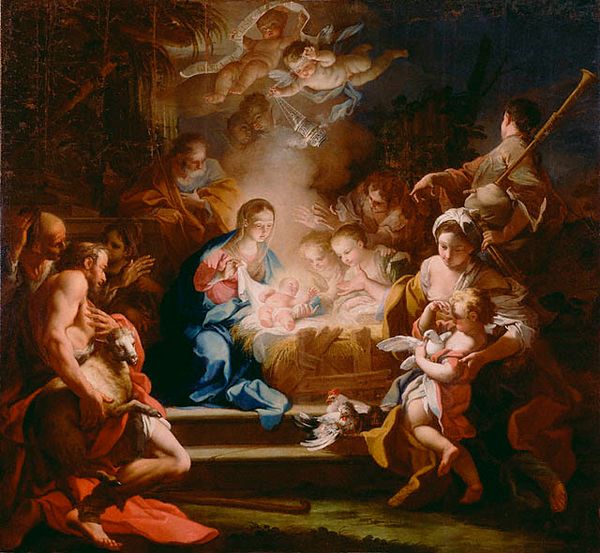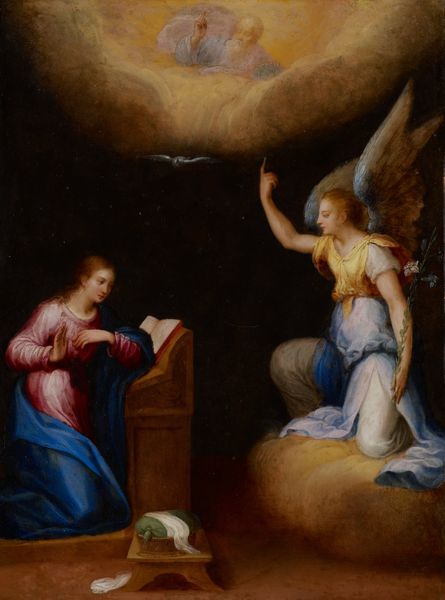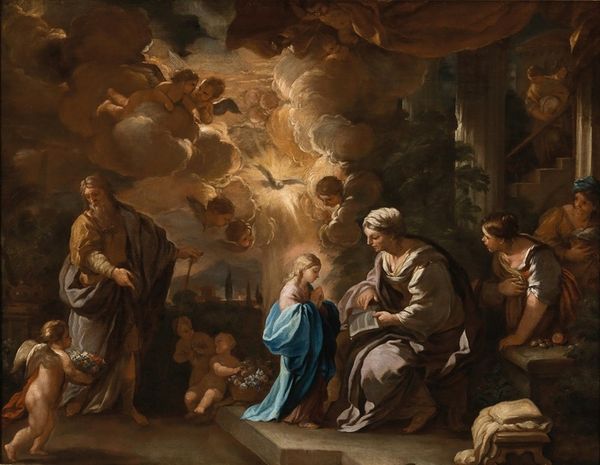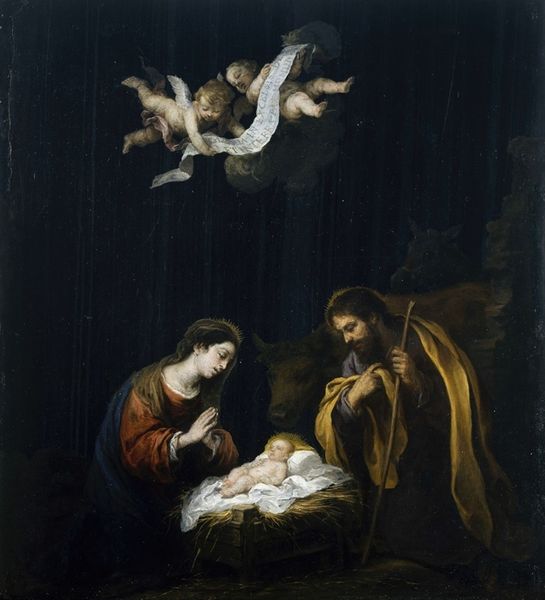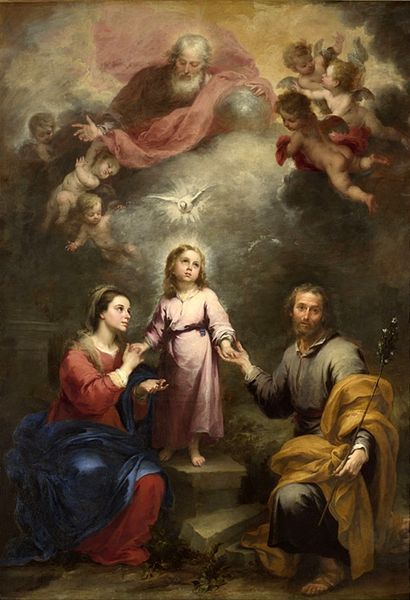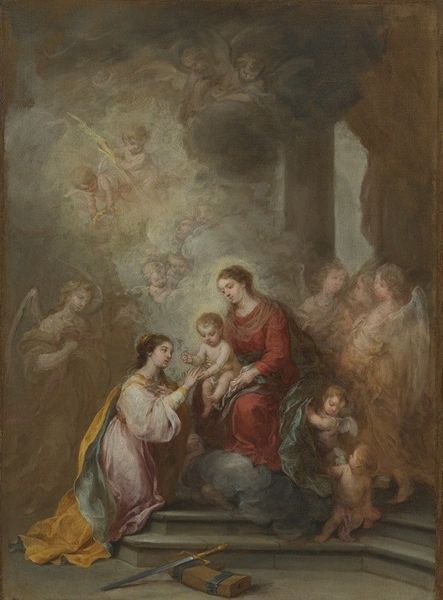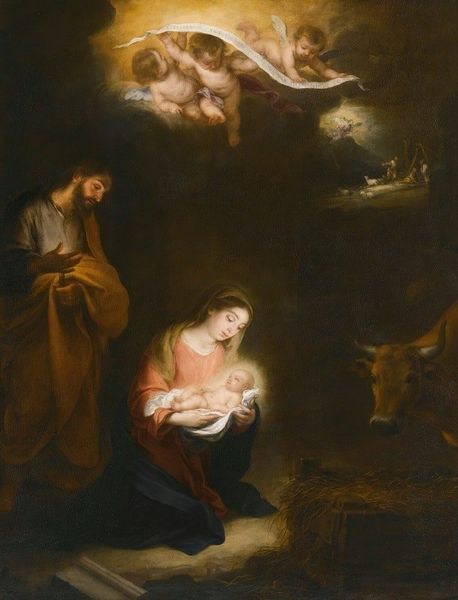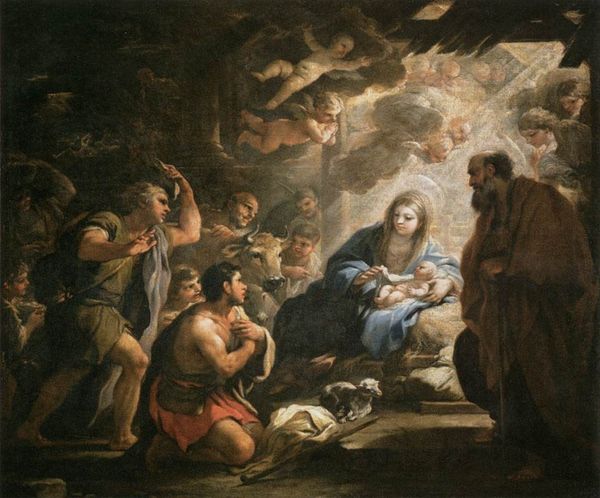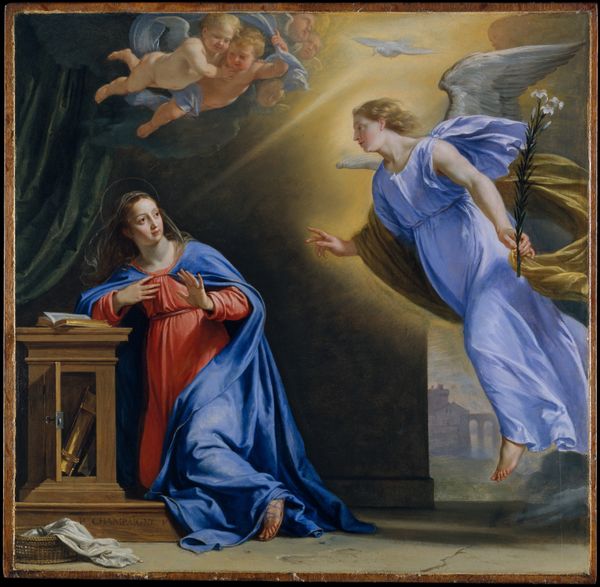
painting, oil-paint
#
allegory
#
baroque
#
painting
#
oil-paint
#
figuration
#
oil painting
#
history-painting
Copyright: Public Domain: Artvee
Bartolomé Estebán Murillo rendered this Annunciation to the Virgin in oil paint, likely sometime in the mid-17th century. Murillo used canvas and pigments as his medium, which were produced and distributed through a complex network of trade and labor. The raw materials had to be gathered, processed, and transported, and then purchased. This all indicates a significant investment of resources, and a robust economic infrastructure. Murillo’s skilled brushwork brings this scene to life, with its soft colors and dramatic light. But let’s also consider the labor involved in preparing the canvas, mixing the paints, and applying them with precision. The making of the painting is embedded with social and cultural meanings, reflecting not just Murillo’s artistic vision, but the economic and material conditions of his time. Ultimately, the painting’s value is not only in its aesthetic appeal, but also in its reflection of the complex web of material and social relations that made its creation possible.
Comments
No comments
Be the first to comment and join the conversation on the ultimate creative platform.
